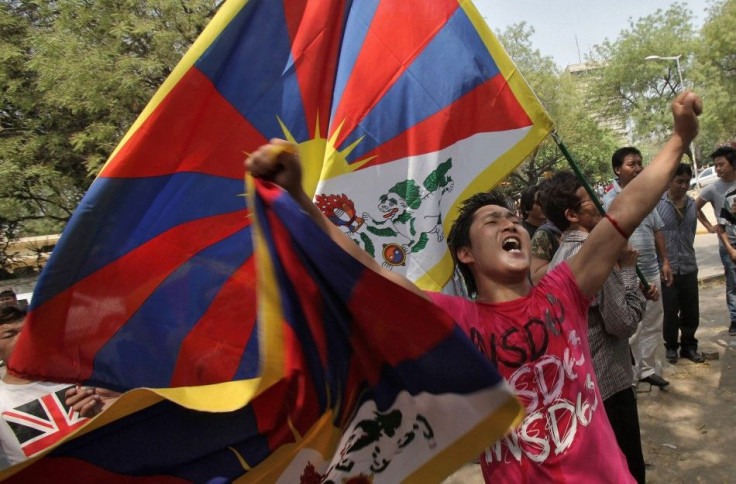Dechen Wangdu: The Union Between Adam Yauch And His Tibetan Activist Wife, A Look Back

Beastie Boy Adam Yauch passed away on Friday, leaving his widow Dechen Wangdu to carry on crusade they once pursued together.
Dechen Wangdu is an American-born activist of Tibetan descent. For her entire life, she has been devoted to the cause of Tibetan liberation from China. When she met Yauch, the two joined forces to fight against injustice together.
The Buddhists of Tibet, a Himalayan plateau, have sought greater autonomy since the area was seized by China's military in 1951. China's atheist government has since attempted to suppress the practice of Buddhism. Tibetans' spiritual leader, the 14th Dalai Lama, fled the country during an uprising in 1959. He now lives in India, and frequently travels the world to spread his message of oneness and peace.
Wangdu knew of the Tibetan struggle firsthand, since her parents were very active in protesting against Chinese control over Tibetan Buddhists. Due to her own activism, Wangdu was once denied a visa to travel to China for a UN World Conference on Women, which was held in Beijing in 1995. The next year, Wangdu fasted for days as part of a worldwide campaign for the release of Chinese activist Wei Jingsheng, who had been arrested in 1979.
Before meeting his wife, Yauch too was interested in Tibetans' struggle for freedom. In 1994, he founded the Milarepa Fund, which was meant to channel some of the Beastie Boys' profits to supporters of the Tibetan cause.
That's why Yauch was at Harvard University on September 10, 1995. The Dalai Lama was giving a speech there, and Yauch was at the ceremony to make a donation to a group called Students for a Free Tibet.
Wangdu was a representative for that group, and the two met for the first time on that day. Beastiemania reports that they ran into each other again months later, at a Students for a Free Tibet conference in Chicago.
At that time in his life, Yauch didn't know whether he even wanted to pursue a relationship. But apparently, he was sufficiently charmed by Wangdu and felt a connection with her due to their shared passion.
I was debating between the idea of being a celibate and becoming a monk or actually having family, he said during an interview with Rolling Stone. I was deciding whether or not I wanted to try being in a serious relationship or just stay on my own...Dechen and I started spending some time together and hanging out, it just felt like it would be great to have a family. That would be the right thing to do.
From then on, the two worked together to raise awareness about Tibet. Shortly after meeting Wangdu, Yauch began organizing the Tibetan Freedom Concerts. The first of several rock festivals was held in San Francisco in 1996. It raised more than $800,000 for Tibet and related causes.
The pair officially tied the knot in 1998, which is the same year that Yauch produced a documentary called Free Tibet. A long list of musicians, actors and scholars, including Wangdu, were featured in the film.
Together, Yauch and Wangdu became high-profile partners in the fight for justice on behalf of Tibetan Buddhists.
Sadly, Yauch's efforts were derailed by illness in 2009, when he was diagnosed with cancer after a tumor was found on his salivary gland. Despite surgery and radiation treatments, he passed away on Friday.
For Dechen Wangdu, the battles goes on as the situation in Tibet is far from resolved. In response to increased cultural repression in recent years, young Tibetans have taken to setting themselves aflame as a form of public protest. At least 35 Tibetans have engaged in self-immolation so far this year; most have died.
Now, Wangdu has another death to mourn. But the words of the Dalai Lama himself may ease her pain as she continues fighting for what she has always believed in.
Death is a part of all our lives, said the Buddhist leader. Whether we like it or not, it is bound to happen. Instead of avoiding thinking about it, it is better to understand its meaning. We all have the same body, the same human flesh, and therefore we will all die... If from the beginning your attitude is 'Yes, death is part of our lives,' then it may be easier to face.
© Copyright IBTimes 2024. All rights reserved.












